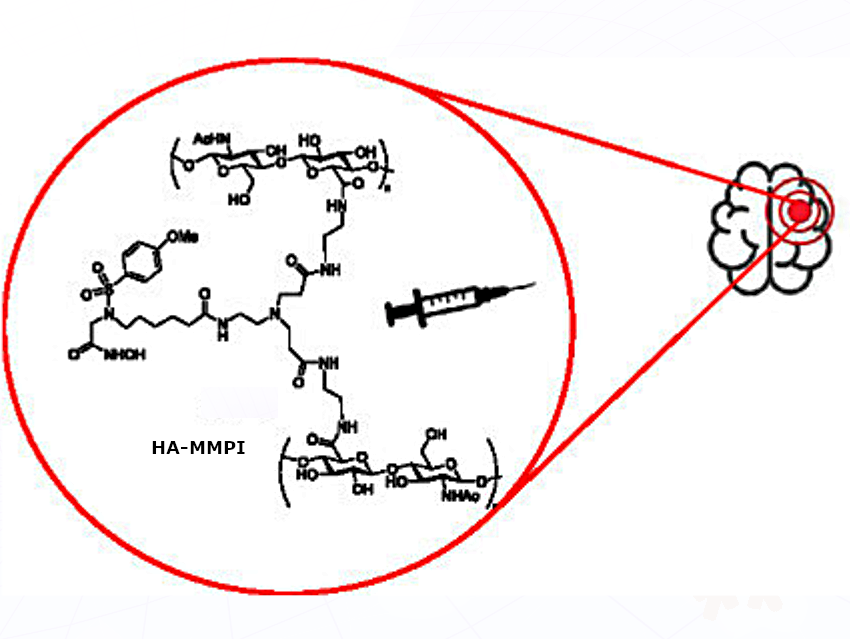Glioblastoma multiforme (GBM) is a highly aggressive brain cancer. Even after surgery, leftover cancer cells can regrow due to their invasive nature. A major contributor to this is an enzyme called MMP-2, which breaks down surrounding tissue and helps cancer spread. Systemic drugs that block MMPs often cause side effects because they’re not selective.
The team, including Agnese Magnani, Università degli Studi di Siena, Siena, Italy, Cristina Nativi, University of Florence, Sesto Fiorentino, Italy, Laura Russo, Università di Milano-Bicocca, Monza (MB), Italy, and colleagues, developed a hyaluronic acid-based hydrogel that can be placed directly into the brain cavity after tumor removal and slowly releases a branched MMP-2 inhibitor, selectively blocking MMP-2 activity and reducing tumor cell migration without harming healthy tissue.
The researchers created a branched molecule using standard organic reactions, starting with a sulfonamide derivative and converting it into a hydroxamic acid, which is known to inhibit MMPs. The inhibitor was chemically linked to hyaluronic acid (HA), a natural component of brain tissue, via stable amide bonds. This cross-linking was done using EDC/NHS coupling chemistry.
The results indicate that the hydrogel was stable, non-toxic, and selectively inhibited MMP-2 (not MMP-9). It was verified through the in vitro analysis.
This hydrogel could be used as a local treatment after surgery to prevent glioblastoma recurrence. It avoids the side effects of systemic drugs and may help reshape the tumor environment to slow cancer progression. Future directions include testing in animal models and exploring its use as a platform for other brain-targeted therapies.
- Bioresponsive Hyaluronic Acid-Based Hydrogel Inhibits Matrix Metalloproteinase-2 in Glioblastoma Microenvironment
Federica Barbugian, Domenico Salerno, Elisa Ballarini, Luca Crippa, Oscar Francesconi, Francesco Mantegazza, Guido Cavaletti, Stefano Roelens, Gemma Leone, Simone Pepi, Luigi Talarico, Agnese Magnani, Cristina Nativi, Laura Russo
ChemMedChem 2025
https://doi.org/10.1002/cmdc.202401040



